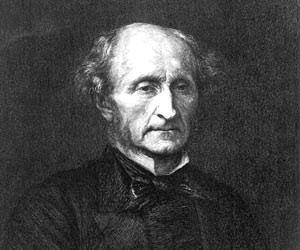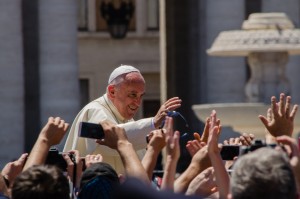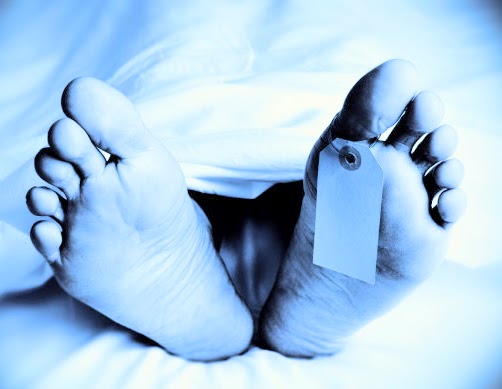‘Liberalism’ is not a term that admits of straightforward definition. To quote Nietzsche, ‘only something which has no history can be defined’ (On the Genealogy of Morality II.13), and liberalism has a complex and to some degree incoherent history. The liberalism of John Stuart Mill, for instance, is differently contoured to that of John Rawls: whereas Mill elaborates what Rawls calls a ‘comprehensive’ conception of the good of liberty, Rawls’ own theory claims to be purely political, and also to accommodate the good of equality. In America, ‘liberal’ tends to be a synonym for ‘left-wing’, while in the U.K., it retains associations with economic laissez-faire. Despite these complexities, I will use ‘liberalism’ to designate that movement (both political and intellectual) which strives to maximise individual freedom, consistent with the equal freedom of others. In other words, a liberal is someone committed to maximal equal freedom, where this is to be pursued in as many domains as possible.
The idea that liberalism generates contradictions, or at least inconsistencies of various sorts, is not new. To date, one of its most eloquent and convincing proponents is James Kalb, in The Tyranny of Liberalism (ISI Books, 2008; see chapter four, ‘Through the Looking Glass’). Kalb argues that in and through advocating an ever-widening range of individual freedoms, liberal regimes end up being more coercive than less avowedly liberal (or more ‘traditional’) regimes. He speaks in this context of how liberal ‘neutrality’ becomes increasingly positive and moralistic, how liberal judges become more and more willing to use censorship, and how liberal governments become less and less interested in seeking the consent of the governed (in virtue of having recourse to a purportedly unchallengeable and objective schedule of ‘rights’). This analysis is echoed in Kenneth Minogue’s The Servile Mind (Encounter Books, 2010). As Minogue puts matters, ‘while our moral sentiments tend to follow the principle of “anything goes”, institutional life has never been more tightly controlled … Rights grow in every corner of life, yet every liberation we acquire augments the march of regulation’ (145).
While I am sympathetic to this line of argument, I want to explore liberalism’s tendency to contradiction (or at least inconsistency) at a more fine-grained level, that is, at the level of particular policies and their outcomes. Such policies involve positive institutional action and legislation, but also the deliberate omission of these. My focus will be on the family sphere, one of the most contested spheres within current liberal polities, presumably because its structure has such great repercussions for society as a whole. Let’s take the issue of fatherhood first of all.
The other week I visited a centre for asylum seekers, and picked up a government-sponsored pamphlet entitled ‘Fatherhood is important’. The pamphlet stressed that fathers have a vital role to play in families, not only later on in children’s lives, but also early on. It enjoined fathers to take their responsibilities seriously, and deprecated those who leave mothers to cope on their own, especially without any financial support. Concurrently with such advice, however, the liberal State and its agencies inform us that single parenthood must be wholly accepted, and even celebrated as constituting merely another form of family structure (in which, of course, women are almost always the ones left caring for children). This sidelining of fatherhood has recently been reinforced by the British National Health Service: it has established a sperm bank in Birmingham, which de facto renders fatherhood a purely biological notion, with no duties of care attached. And in the courts, fathers almost uniformly lose out to mothers when it comes to custody battles over children. Clearly, fatherhood is not that important, at least according to the dominant organs of the liberal State (those charged with chasing up absent fathers for cash may constitute an exception).
As a second example, take the social results of these developments. In Life Without Father (Free Press 1996), the sociologist David Popenoe provides detailed evidence that children who lack a father in their lives (preferably their biological father) have significantly worse prospects. What Popenoe calls the ‘human carnage of fatherlessness’ is generated by a lack of distinctively male parenting styles. Men tend to encourage risk-taking, competition and independence in their children, and also tend to provide more consistent and effective forms of discipline. Children deprived of male parenting suffer in terms of academic achievement, health, financial security, empathy (perhaps counter-intuitively), and general psychological stability. Worst of all, perhaps, boys raised without fathers are far more likely to engage in delinquent and violent behaviours as they grow up, while girls are far more likely to be promiscuous (with teen pregnancy a heightened risk). Other sources strongly corroborate this evidence.1 Nevertheless, liberals persist in obscuring the connection between the above social pathologies and the growing epidemic of fatherlessness. Families must be allowed (even encouraged) to take a variety of forms, they hold, even ones that exclude fathers in principle, and divorce law must be liberalised to ensure that adult freedoms are preserved at all costs.
As a third example, take the recent moral outrage sparked in liberal societies by media reports of paedophilia and rape. Such sexual behaviours are greeted by campaigns of ‘zero tolerance’ – in societies that pride themselves, ironically enough, on erecting tolerance as a central value. The salient contradiction here lies not, however, between tolerance in principle, and intolerance in practice. After all, tolerance as a political value is not absolute, and liberal societies are not committed to its being so. The salient contradiction lies, once again, in the fact that liberalism is itself largely to blame for what it condemns. For it is liberals who have made sure that schools do not engage in any substantial formation of the sexual person. Instead, ‘sex ed.’ consists in little more than teaching sexual techniques, with the added requirement that any sexual encounters must be consensual. But this is woefully inadequate in the absence of any wider shaping of the sexual drives, or of any wider inculcation of cultural practices surrounding sex and marriage. It is precisely such shaping and inculcation which is dubbed ‘illiberal’, and hence gets pushed off the political agenda.
All in all, then, I have argued that phenomena liberals decry – such as fatherly irresponsibility, violence among young men, and sexual abuse – are (at least) exacerbated by, or (at most) caused by liberal policies themselves. Liberalism trumpets its commitment to freedom, and the ‘equal’ distribution thereof, but this highly abstract and insufficiently textured axiology is simply incapable of yielding a sustainable raft of social policies. Instead, what happens all too often is that liberal policy-makers grant freedoms in one area, which sooner or later generate chaos and collapse in others. There then ensue claims of outrage, and/or deflection of blame from the root causes and conditions of such chaos and collapse – viz. liberal policies themselves. This pattern of what could be called ‘disguised destruction’ has only got worse since liberalism gained a strong foothold in the relatively rich, industrialised world. It is a social psychological question of some moment why this pattern has not been more widely recognised, and why (where it has been recognised) it has been allowed such free rein, not encountering more rigorous opposition. But that is a topic for another occasion.
- See, for example, the biologically-grounded evidence in ‘Mother Bodies, Father Bodies’, eds K. K. Kline and W. Bradford Wilcox (Institute for Family Studies 2014), and the devastating social statistics provided by ‘Fathers for Life’. ↩









Would this apply to merely left liberalism (that I’d argue tries to construct a conception of the good in tolerance itself) or right liberalism as well?
o21p9m